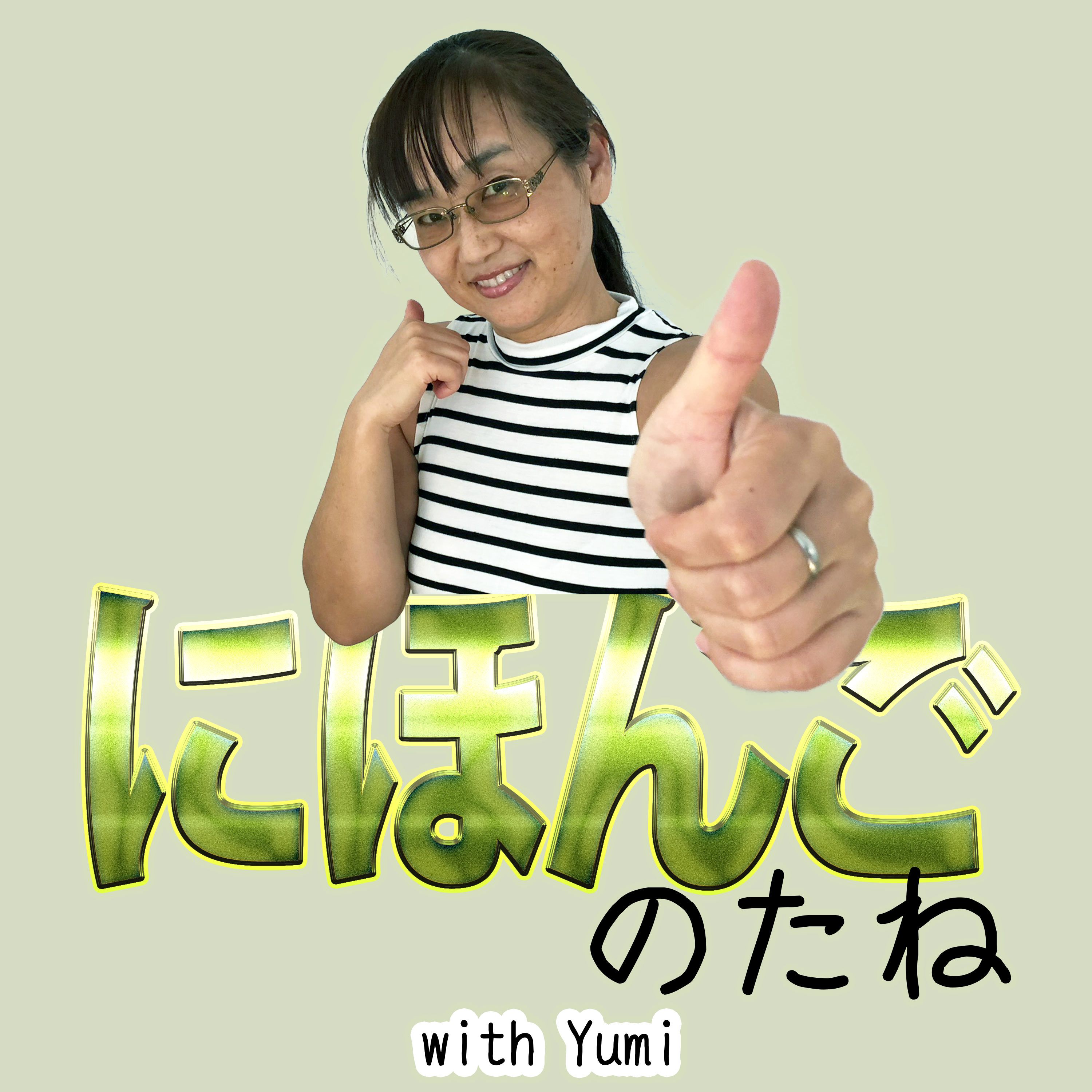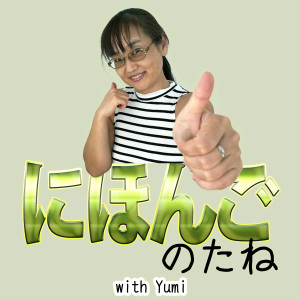
120.3K
Downloads
170
Episodes
A weekly podcast for upper beginner to intermediate learners of Japanese. Listen to Yumi talk about... whatever she wants to talk about. Practice your listening comprehension with natural (howbeit slightly slowed down) Japanese on various topics such as Japanese culture, fun idioms, and, of course, cats. The episodes can be enjoyed in any order. -- Become a Makoto+ member and get show notes with a complete transcript and a list of key vocabulary. www.MakotoPlus.com
Episodes

Monday Apr 07, 2025
Nihongo no Tane 169: 父のお葬式 My father's funeral| Japanese Immersion podcast
Monday Apr 07, 2025
Monday Apr 07, 2025
In this episode of Nihongo no Tane, Yumi shares a personal and heartfelt story about returning to Japan for her father’s funeral. From navigating unfamiliar funeral customs to reconnecting with family members she hadn’t seen in years, Yumi reflects on the busy, emotional days that followed her father’s passing. She also talks about what made the ceremony special and how her father’s long life in his hometown was filled with friendship and meaning. A touching episode with insights into Japanese culture and family life.
KEY VOCABULARY:
- 私(わたくし)ごと — "A personal matter." 私 is read here as わたくし, a formal and humble reading of "I" or "private," and ごと (事) means "matter" or "thing." A humble expression to refer to one's personal affairs, often used in formal or respectful speech.
- お葬式(そうしき) — "Funeral." 葬 means "to bury" and 式 means "ceremony." The prefix お adds politeness to the word.
- およそ — "About; approximately." A formal adverb used to express an estimated quantity or duration.
- 脳梗塞(のうこうそく) — "Stroke; cerebral infarction." 脳 means "brain," 梗 means "blockage," and 塞 means "obstruction," referring to a blocked blood vessel in the brain.
- 麻痺(まひ) — "Paralysis; numbness." 麻 means "numb" or "hemp," and 痺 means "numbness" or "paralysis," used for loss of movement or sensation.
- 車椅子(くるまいす) — "Wheelchair." 車(くるま) means "vehicle," and 椅子(いす) means "chair," literally describing a wheeled chair.
- 癌(がん)になり — "Developed cancer." 癌 means "cancer," and 〜になる ("to become") is used here in its ます-stem form なり, which connects to the next verb (手術(しゅじゅつ)をしまして); this is common in narrative style to maintain flow.
- 手術(しゅじゅつ) — "Surgery; operation." 手 means "hand," and 術 means "technique" or "skill," referring to a medical procedure.
- 老人(ろうじん)ホーム — "Nursing home." 老人(ろうじん) means "elderly person" (老 = "old," 人 = "person"), and ホーム is "home" in katakana, meaning care facility.
- 出(で)ることもできず — "Could not go out." 出(で)る means "to go out," こと turns the verb into a noun, できる means "can," and 〜ず is the classical negative of 〜ない, so できず = "could not (and...)"—implying an ongoing state or sequence.
- そろって — "All together; as a group." From 揃(そろ)う ("to be gathered/complete"), in て-form to connect actions or indicate simultaneous action.
- 浸(ひた)っている — "To be immersed (in something)." 浸る means "to soak or immerse," and the 〜ている form indicates a continuous state—here, emotionally immersed.
- 葬儀屋(そうぎや)さん — "Funeral director." 葬儀(そうぎ) means "funeral service" (葬 = "to bury," 儀 = "ceremony"), 屋 means "shop/person in charge," and さん adds respect.
- ああだこうだ — "This and that; back and forth." A colloquial expression representing indecision or a flurry of decisions, often used when things are hectic.
- お坊(ぼう)さん — "Buddhist monk." 坊 refers to a Buddhist monk (originally meaning “boy” or “temple person”), and さん adds politeness.
- お布施(ふせ) — "Offering to a monk or temple." 布 means "to distribute" or "cloth," 施 means "to give" or "bestow," and together refer to a monetary offering.
- 年老(としお)いた母(はは) — "Elderly mother." 年老(としお)いた is the past form of 年老(としお)いる ("to grow old," 年 = "year," 老 = "old"), and 母 means "mother"—a respectful phrase for one’s aging mother.
- 費用(ひよう) — "Cost; expense." 費 means "expense," and 用 means "use" or "purpose"—together meaning "cost required for something."
- 祭壇(さいだん) — "Altar." 祭 means "ritual" or "festival," and 壇 means "platform"—a ceremonial platform often decorated in religious events.
- 豪華(ごうか) — "Luxurious; splendid." 豪 means "magnificent" or "extravagant," and 華 means "splendor" or "flower," together describing something rich or ornate.
- 昭和(しょうわ) — "Showa era." 昭 means "bright" and 和 means "peace," referring to the Japanese era from 1926 to 1989 (Showa 12 = 1937).
- 末(すえ)っ子(こ) — "Youngest child." 末 means "end," and 子 means "child." The small っ adds emphasis to show it's the last-born.
- 高齢(こうれい) — "Old age; elderly." 高 means "high," and 齢 means "age," a respectful and formal term for advanced age.
- 故郷(ふるさと) — "Hometown." 故 means "former" or "deceased," and 郷 means "village"—a nostalgic or sentimental term for one's birthplace.
- 囲(かこ)まれた人生(じんせい) — "A life surrounded (by something)." 囲(かこ)まれた is the passive past form of 囲(かこ)む ("to surround"), and 人生(じんせい) means "life"—used here to describe a life surrounded by friends.
For upper beginners to intermediates. Listen to the short podcast and then answer the comprehension questions on the website: https://thejapanesepage.com/nihongonotane-index/
Take a quiz on this episode here:
https://thejapanesepage.com/podcast-nihongonotane-169
If you are a Makoto+ member, you can find the transcript, English translation, key vocabulary, and a downloadable PDF for printing:
https://MakotoPlus.com/podcast-nihongonotane-169-m
--
Become a Makoto+ member and get show notes with a complete transcript, translation, key vocabulary, and a downloadable PDF.
www.MakotoPlus.com

No comments yet. Be the first to say something!